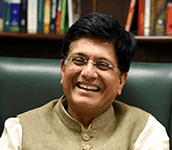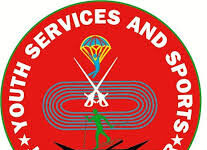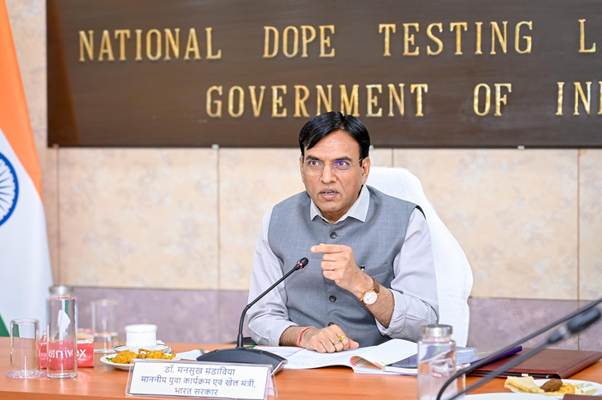APRIL 17: Union Minister of Youth Affairs & Sports and Labour & Employment, Dr. Mansukh Mandaviya, inaugurated the Athlete Passport Management Unit (APMU) at the National Dope Testing Laboratory (NDTL) in New Delhi. The initiative marks a significant advancement in India’s commitment to clean, ethical, and transparent sports practices both domestically and globally.
During the event, Dr. Mandaviya emphasized the importance of the APMU as a landmark in India’s anti-doping journey. The unit will implement the Athlete Biological Passport (ABP) system to monitor athletes’ biological profiles over time. By analyzing blood and steroidal markers, the APMU can detect suspicious trends that may indicate doping, thus preserving fair play in sports.
Highlighting the broader significance of this initiative, Dr. Mandaviya described the APMU as a beacon of support for the Global South. He noted that many neighboring countries lack the resources to develop such sophisticated anti-doping systems. India, he said, is ready to share its expertise and infrastructure with them, reinforcing solidarity and integrity in sports across the region.
He further underlined the importance of grassroots education and awareness. Dr. Mandaviya called for greater involvement from sports federations, academic institutions, and early education bodies in anti-doping awareness. He also suggested launching campaigns in rural areas and encouraged laboratory scientists to educate school and university students about anti-doping science.
The newly established APMU in India is aligned with the standards of the World Anti-Doping Agency (WADA) and is only the 17th such unit globally. It will function as a specialized body responsible for the continuous monitoring of athletes’ biological data to detect potential doping violations.
The inauguration ceremony was attended by Smt. Sujata Chaturvedi, Secretary (Sports), Shri Kunal, Joint Secretary (Sports), other senior officials of the Ministry, as well as renowned scientists and Prof. (Dr.) P. L. Sahu, Director & CEO (I/c) of NDTL.
The concept of the Athlete Biological Passport was developed to enable long-term tracking of athletes’ physiological markers. Instead of identifying banned substances directly, the ABP looks for abnormalities in biological data that could suggest doping. This method enhances detection and upholds the integrity of competitive sports.
The launch of the APMU is a major stride in strengthening India’s anti-doping infrastructure and promoting ethical sportsmanship on the global stage.



















